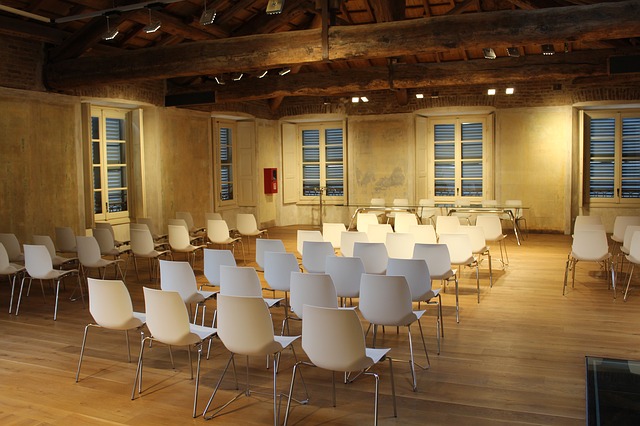
Applying for a Conference
How to Write a Successful Motivation Letter for Economics Conferences
Read a summary using the INOMICS AI tool
When you apply to present at an economics conference, you'll often be asked to provide a letter of motivation along with your abstract and CV. This is used to decide which applicants will be invited to give a talk or poster presentation at the conference. But what information should this letter of motivation contain, and what's the best way to increase your chances of being accepted to present?

Start with the basics: your name, institutional affiliation, and a very brief career recap
You should open your letter of motivation by introducing yourself and giving basic information on your current role and the current topic of your economics research. You may want to include a sentence in which you mention the positions you have held previously, or any grants which you have been recently awarded. However, the majority of your letter should be about your research rather than about yourself, so keep this section short and to the point.
Give a basic description of your economics research
You don't need to describe the exact details of your research, such as the experimental methods used or the results which you have gathered so far, as this information should be contained in your abstract. But you should give a simple summation of which sub-field you work in and what your research is about. Keep this general, as the people reading it may not be experts in your area. Imagine you were describing your work to a friend who works outside of academia, and write a few sentences about your research in this style.
Suggested Opportunities
- Conference
- Posted 2 weeks ago
47th RSEP International Multidisciplinary Conference
Between 15 May and 16 May in Barcelona, Spain
- Conference
- Posted 2 weeks ago
CALL FOR PAPERS - 19th YOUNG ECONOMISTS’ SEMINAR (YES)
Between 28 May and 31 May in Dubrovnik, Croatia
Fit your topic to the conference theme
As well as a general topic or subject which they cover, many economics conferences will have a theme which is different each year. The theme will typically reflect a large or important issue in the field which has been prominent over the year. If you can find a way to fit your research into the conference theme, this will greatly improve your chance of being accepted. The fit doesn't have to be perfect, but the themes are usually designed to be flexible, so put a sentence into your abstract about how your findings do or will impact on the theme and you'll make your presentation more relevant for the conference organizers and the audience.
Be specific about the benefits of your economics research
You probably know that you should describe all the ways that your research could have an impact on the field, in order to persuade the conference organizers that the attendees would benefit from hearing about your work. However, you should avoid the common mistake of describing the benefits of your work in generic terms. For example, 'This work will help to develop a more complete understanding of [this particular sub-field]' is too vague and is not convincing.
Instead, be specific about the benefits of your work, for example 'This work will add the perspective of [a particular group] which is currently missing from analyses in [this particular subfield].' Also make sure to note why your research timely and of relevance at this time in particular. For example, 'Following the publication of [major work] last year', or 'With the [major world event] approaching next year, this research adds [a new perspective/important data/a new theoretical framework or idea] which is important at this time because...'
Describe how your economics research is relevant to the conference audience
You should consider why your work would be of interest not only to other members of your field in general, but to the audience at this conference in particular. For example, if you work in psychology in the field of mental health, and you are applying to a conference with a strong clinical focus, then you could describe why your work would be useful to clinicians for their practice. Or if you are applying for an interdisciplinary conference, describe the relevance of your work to the other fields represented at the conference.
-
- Assistant Professor / Lecturer Job
- Posted 1 week ago
Visiting Assistant Professor - Economics
At Boise State University in Boise, United States
-
- Postdoc Job
- Posted 1 week ago
Research Assistant (Postdoctoral Fellow) (f/m/d)
At University of Bremen in Bremen, Germany
-
- Postdoc Job
- Posted 2 weeks ago
Postdoctoral Researcher (all genders welcome)
At Georg-August-Universität Göttingen in Germany













